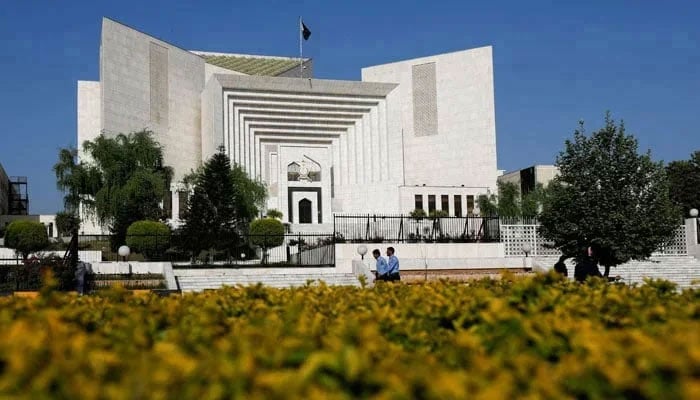Pendency of a case does not stay execution of court order: SC

ISLAMABAD: The Supreme Court has ruled that the mere pendency of an appeal, revision or constitutional petition does not automatically stay the execution or implementation of a court order.
A three-member bench of the apex court, headed by Chief Justice Yahya Afridi and comprising Justice Shakeel Ahmed and Justice Ishtiaq Ibrahim, issued the judgement against an order dated 22.09.2015 passed by the Lahore High Court’s Bahawalpur Bench in writ petitions titled Chief Land Commissioner, Punjab/ Senior Member Board of Revenue, Punjab, Lahore, etc versus Administrator Auqaf Department, Bahawalpur, etc.
The court reiterated its recent clarification in Rashid Baig vs Muhammad Mansha (2024 SCMR 1385), stating: “The mere pendency of a petition before this court does not, by itself, operate as a stay of proceedings, which may only be lawfully restrained by an express injunctive order of the court.” This observation was part of a four-page judgement authored by Chief Justice Yahya Afridi.
The apex court held that administrative inaction based solely on pending proceedings—without any lawful restraint—is both unjustified and impermissible.
The case originated in 2010 from a land dispute in Bahawalpur. In 2015, the LHC (Bahawalpur Bench) remanded the matter to the Revenue Department with directions to re-decide it in accordance with the law. However, the court noted that even after 10 years, the deputy land commissioner of Bahawalpur had failed to take any decision.
The Supreme Court observed a 10-year delay in implementing the high court’s remand order, despite no stay order from any court. The revenue authorities had neglected to act on the high court’s instructions.
The Punjab advocate general conceded before the apex court that treating remand orders as optional is an unconstitutional practice.
The court declared that the pendency of an appeal or review petition does not halt the implementation of a decision, emphasizing that such delays amount to disrespecting court orders.
The court disposed of the petitions as infructuous but directed the Punjab Board of Revenue to finalise, circulate and strictly implement promised policy guidelines.
“A compliance report, along with an updated status of all pending remanded cases in the province, shall be submitted to the Registrar of this Court within three months of this order,” the judgement concluded.
-
 Prince William Warned His Future Reign Will Be Affected By Andrew Scandal
Prince William Warned His Future Reign Will Be Affected By Andrew Scandal -
 Amy Madigan Reflects On Husband Ed Harris' Support After Oscar Nomination
Amy Madigan Reflects On Husband Ed Harris' Support After Oscar Nomination -
 Is Studying Medicine Useless? Elon Musk’s Claim That AI Will Outperform Surgeons Sparks Debate
Is Studying Medicine Useless? Elon Musk’s Claim That AI Will Outperform Surgeons Sparks Debate -
 Margot Robbie Gushes Over 'Wuthering Heights' Director: 'I'd Follow Her Anywhere'
Margot Robbie Gushes Over 'Wuthering Heights' Director: 'I'd Follow Her Anywhere' -
 'The Muppet Show' Star Miss Piggy Gives Fans THIS Advice
'The Muppet Show' Star Miss Piggy Gives Fans THIS Advice -
 Sarah Ferguson Concerned For Princess Eugenie, Beatrice Amid Epstein Scandal
Sarah Ferguson Concerned For Princess Eugenie, Beatrice Amid Epstein Scandal -
 Uber Enters Seven New European Markets In Major Food-delivery Expansion
Uber Enters Seven New European Markets In Major Food-delivery Expansion -
 Hollywood Fights Back Against Super-realistic AI Video Tool
Hollywood Fights Back Against Super-realistic AI Video Tool -
 Pentagon Threatens To Cut Ties With Anthropic Over AI Safeguards Dispute
Pentagon Threatens To Cut Ties With Anthropic Over AI Safeguards Dispute -
 Meghan Markle's Father Shares Fresh Health Update
Meghan Markle's Father Shares Fresh Health Update -
 Samsung Galaxy Unpacked 2026: What To Expect On February 25
Samsung Galaxy Unpacked 2026: What To Expect On February 25 -
 Travis Kelce Takes Hilarious Jab At Taylor Swift In Valentine’s Day Post
Travis Kelce Takes Hilarious Jab At Taylor Swift In Valentine’s Day Post -
 NASA Confirms Arrival Of SpaceX Crew-12 Astronauts At The International Space Station
NASA Confirms Arrival Of SpaceX Crew-12 Astronauts At The International Space Station -
 Can AI Bully Humans? Bot Publicly Criticises Engineer After Code Rejection
Can AI Bully Humans? Bot Publicly Criticises Engineer After Code Rejection -
 Search For Savannah Guthrie’s Abducted Mom Enters Unthinkable Phase
Search For Savannah Guthrie’s Abducted Mom Enters Unthinkable Phase -
 Imagine Dragons Star, Dan Reynolds Recalls 'frustrating' Diagnosis
Imagine Dragons Star, Dan Reynolds Recalls 'frustrating' Diagnosis



